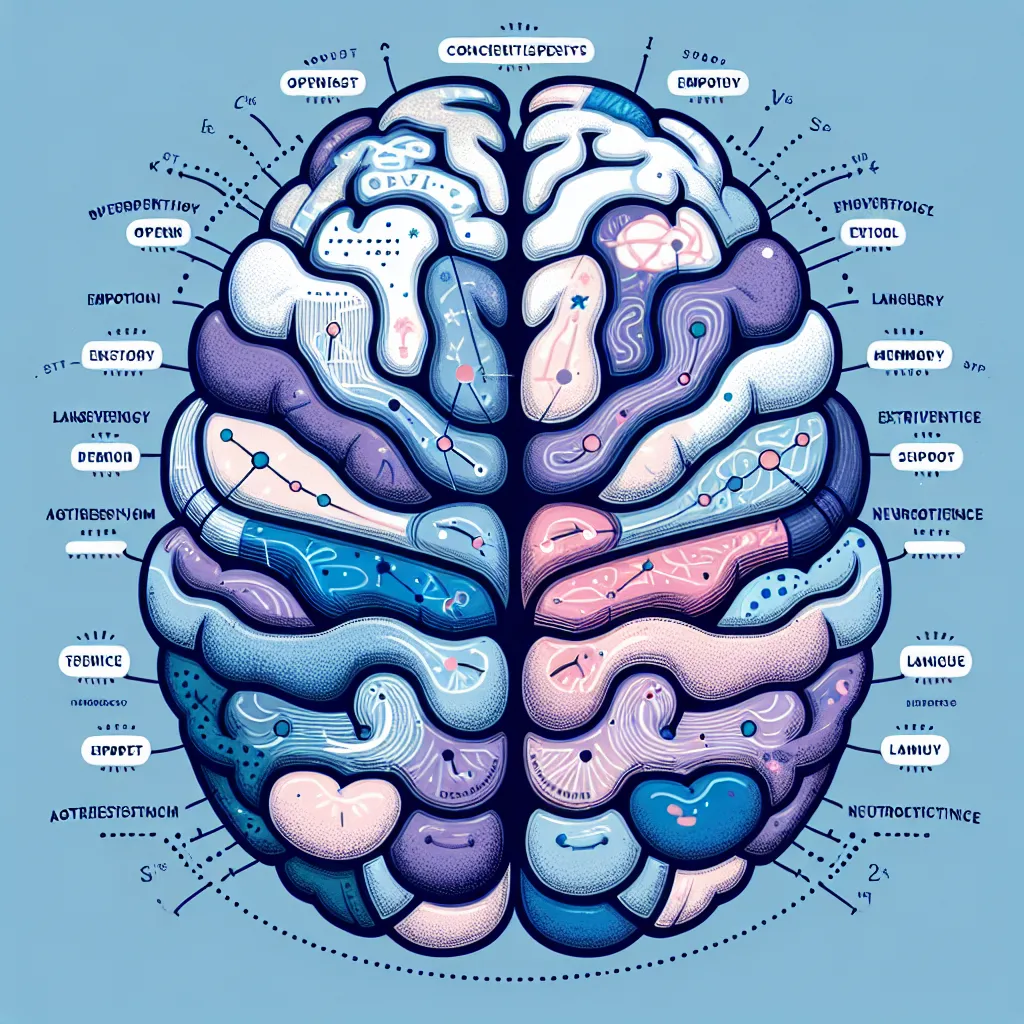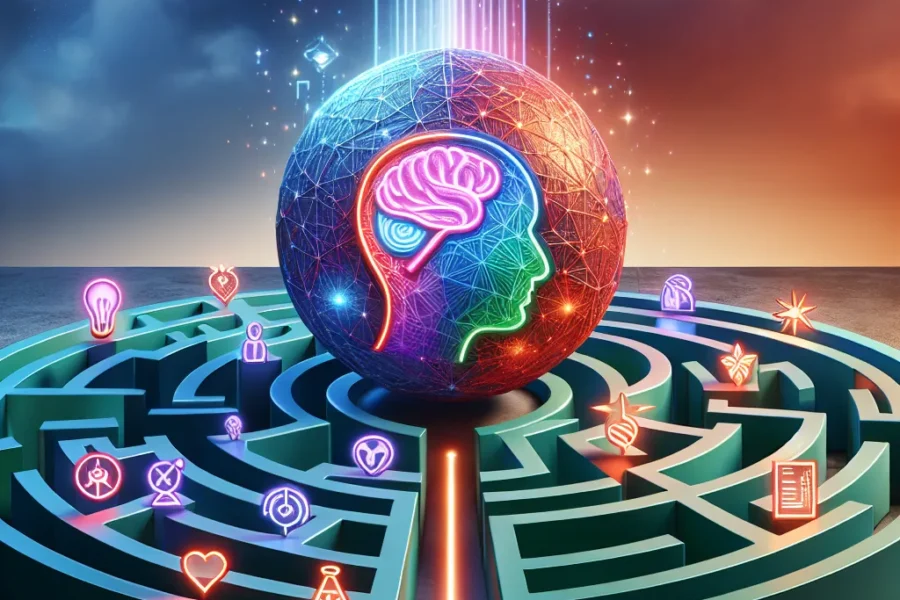The Brain and Personality: Neuroscientific Insights
Personality shapes every aspect of our behavior, influencing how we interact with the world and perceive our environment. Neuroscientific insights have provided a deeper understanding of how our brains contribute to the individual differences that make up our personalities. In this exploration of the brain and personality, we delve into the intricate neurobiological mechanisms that underpin our unique character traits.
The human brain, a complex network of approximately 86 billion neurons, is the epicenter of all mental processes, including those that govern personality. Various regions of the brain work in concert to shape our temperament, decision-making, social abilities, and emotional responses. The prefrontal cortex, particularly, plays a crucial role in executive functions and personality expression. It is involved in planning, decision-making, mediating social behavior, and integrating thoughts and emotions.
Neuroimaging studies, such as functional magnetic resonance imaging (fMRI) and positron emission tomography (PET) scans, have facilitated the visualization of brain activity in real-time, contributing to our understanding of the neurobiological substrates of personality. These technologies allow scientists to identify patterns of brain activity correlated with different aspects of personality, such as introversion, extroversion, neuroticism, openness, conscientiousness, and agreeableness. For instance, extroverted individuals may exhibit more activity in areas associated with processing rewards and social interactions, such as the orbitofrontal cortex and amygdala.
Genetic factors also play a significant role in the development of our personalities. The complex interplay between genes and the environment influences the neural pathways that shape our behavioral patterns. Studies of twins reared apart have provided compelling evidence that genetics contribute to personality traits. Monozygotic twins, who share 100% of their DNA, often display more similar personality traits than dizygotic twins, who share only about 50% of their genes.
Another area of interest is neurotransmitters, the chemical messengers through which neurons communicate. Individual differences in neurotransmitter systems can influence various elements of personality. For instance, dopamine, often associated with pleasure and reward, is linked to traits such as novelty-seeking and extraversion. Serotonin, which regulates mood, can influence traits related to mood stability and anxiety.
The brain’s plasticity—its ability to change and adapt in response to experiences—is another crucial factor in the development of personality. Life experiences, including individual interactions and cultural influences, can lead to lasting changes in neural circuits, thus impacting personality traits. For example, sustained stress can alter the structure and function of the hippocampus, a region involved in memory and emotion regulation, potentially leading to changes in the affected individual’s personality, such as increased anxiety or susceptibility to depression.
Psychopathology and personality are intimately connected, with certain brain abnormalities linked to various personality disorders. For example, individuals with borderline personality disorder (BPD) may have structural and functional abnormalities in the prefrontal cortex and limbic system, which affect emotion regulation and impulsivity. Understanding these links can inform the development of targeted therapies and interventions to manage such conditions.
Emerging fields such as social neuroscience and affective neuroscience are shedding light on the neural bases of social and emotional behaviors, which are intrinsic to our personality. These disciplines are unraveling how networks involving the prefrontal cortex, amygdala, anterior cingulate cortex, and other regions govern empathy, attachment, and our ability to navigate social landscapes.
The interplay of hormones and brain function is also a significant aspect of personality neuroscience. Hormonal fluctuations, like those involving cortisol (the stress hormone) or oxytocin (often called the “love hormone”), can impact social bonding, trust, and aggression, thereby influencing behavioral traits that contribute to an individual’s personality profile. Research in this area might lead to the development of pharmacological interventions that could modulate personality traits in therapeutic contexts.
Another fascinating area is the investigation of the brain’s default mode network (DMN). This network is active when the brain is at rest and not focused on the outside world, playing a role in self-referential thought and aspects of one’s inner life, such as daydreaming, self-identity, and contemplating the past or future. Variations in DMN activity have been associated with different personality traits, suggesting that our internal thought processes reflect and shape our personalities.
Advances in computational neuroscience and machine learning are also enhancing our ability to model and understand the complexities of the brain-personality relationship. These tools allow for the analysis of large datasets obtained from neuroimaging and psychological assessments, providing a more sophisticated understanding of how individual brain structures and networks contribute to personality.
The implications of neuroscientific discoveries about personality extend beyond academia. They hold the potential to revolutionize areas such as education, where personalized learning strategies could be designed to match students’ cognitive and personality profiles. In the workplace, insights from neuroscience could inform talent acquisition and management, enabling better alignment between individuals’ personalities and their job roles.
In healthcare, a greater understanding of the neural underpinnings of personality can lead to improved diagnosis and treatment of mental health conditions. By understanding patients’ unique brain-based personality frameworks, clinicians can tailor interventions to better match their needs, whether through psychotherapy, medication, or a combination of approaches. Personality assessments informed by neuroscience could enable a more personalized approach to treatment, improving outcomes and patient satisfaction.
To sum up, the bridge between the brain and personality is an expansive field of study with vast implications. Neuroscientific insights into the biological basis of personality are not only unraveling the mysteries of human behavior but also opening new pathways for interventions and applications that embrace our individuality. As research continues to unfurl the complex tapestry of neural activity that constitutes personality, we grow closer to understanding the full spectrum of what makes each person uniquely themselves.



Leave a Comment